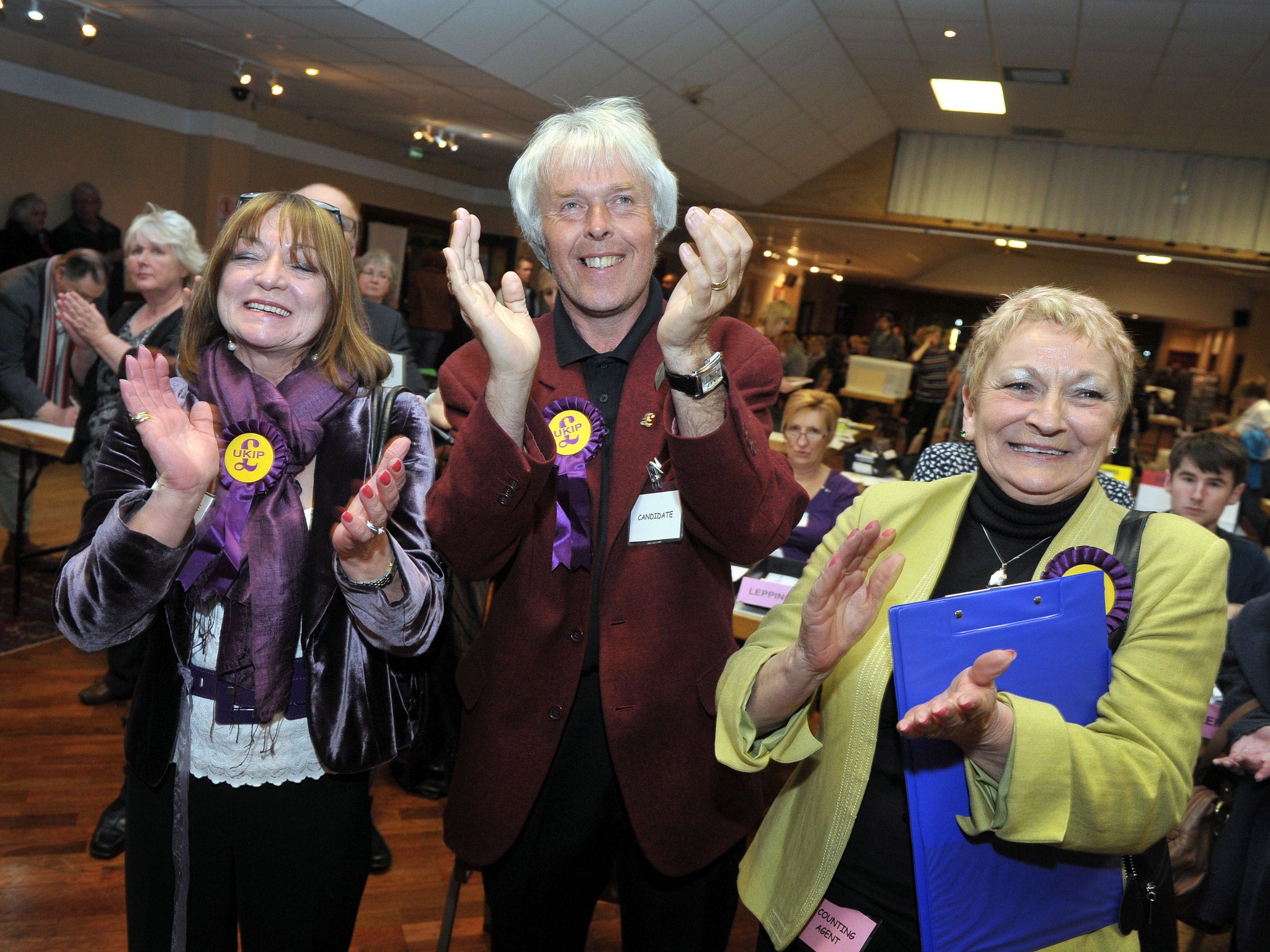The Independent's journalism is supported by our readers. When you purchase through links on our site, we may earn commission.
Can Ukip handle the trials of local government?
The party will need to convert eurosceptic zeal to dealing with complaints about drains

After elections comes a very exciting thing: counting. Ballot papers are counted. Then they are counted again. They are sorted by ballot box, then by party, then by party again. They are paper-clipped, labelled, and sorted into piles. It is at this point that the candidates, parties and eventually the world become aware of the result. The piles tell all. In the county council election on 3 May, they showed a revolutionary change in British local government. For almost every count in a countryside election, there were now four large piles. In the hours before results were announced, the stacks of paper represented the first physical evidence of Ukip’s breakthrough to create- outside Westminster- a four-party system in England.
I was at the count in Cromer, where the ballots for northern Norfolk were counted. Distressed by the height of the purple-tagged piles, I contented myself with the thought that - if their current crop of representatives was anything to go by - Ukip was already somewhat doomed.
Their local leader, Mike Baker, wore a flappy beige suit and chromatic tie, sealing the deal with sandals and thin white socks. His band of helpers wore militaria, invariably accompanied by gigantic double-breasted suits. Perhaps nine in ten were men, nearly all (very) elderly, and with the same expression of stubborn bafflement as a tortoise who has tripped on its own feet. Such trends in fashion and demographics would be unimportant were it not for their sheer unanimity. We do not yet have comprehensive statistics. But the indication is that the all-too-frequently unvetted Ukip candidates, who hold frequently extreme views, are overwhelmingly of this bucolic and self-parodying variety.
Again, this apparent lack of seriousness would not matter were it not worryingly obvious that inability to deal with the modern world also extends to basic ability to run a modern political party and achieve policy aims. Ukip stands on its strength as an anti-establishment party. Almost half its voters cite dissatisfaction with the main parties as their reason for supporting Ukip, while a further quarter cite dissatisfaction with the present government.
However, voters will only support an anti-establishment party when it actually works for them to oppose the establishment. At the moment Ukip, put simply, cannot do this. Can its councillors convert their zeal for euroscepticism to writing to council officers with complaints about drains? Will they provide an effective opposition to Conservative councils?
These things may sound trivial, but if Ukip is to maintain their local government base they will simply have to do them. Ukip is used to not having to form an identity, because it is used to sending elected representatives to the European Parliament, who will automatically have something to protest about for as long as they hold office. But for a party having severe problems with even having national policies, to gain a local identity will be a very difficult struggle.
This is ignoring the purely electoral side. In North Norfolk, and throughout the country it seems, Ukip supporters did not tell canvassers from the main parties they were voting Ukip. They simply materialised on polling day. This mysterious tendency, like a British Bradley effect, is a migraine for the main parties, but it spells disaster for Ukip. They already need to build a grassroots campaigning mechanism from scratch, without a local record to build on. And they have a voter base who are trenchantly anti-political, making them inevitably much harder to persuade to vote. They need a reason not to shift back to the Tories, or apathy. In other words they need a party that will work for them.
This points to choppy waters for Ukip’s future. They are fundamentally a protest vote, and therefore vulnerable to changing political circumstances - the end of a Conservative government, a shift to the right in Conservative policy, changes in the EU, an improved economy. Unless they can establish themselves as tireless community activists, capable of holding power, they will not be able to create the local government base which, in the long run, will enable them to become a party of government rather than merely a protest party of fruitcakes, loonies and closet racists.

Join our commenting forum
Join thought-provoking conversations, follow other Independent readers and see their replies